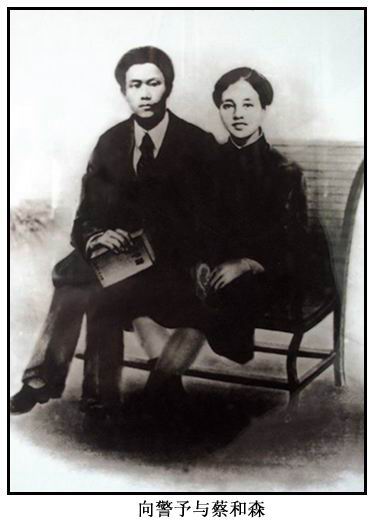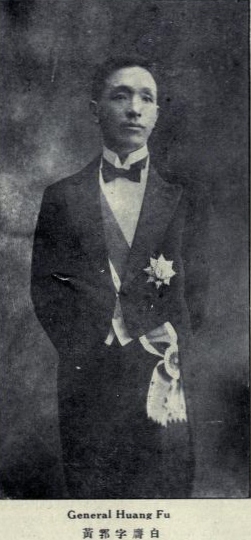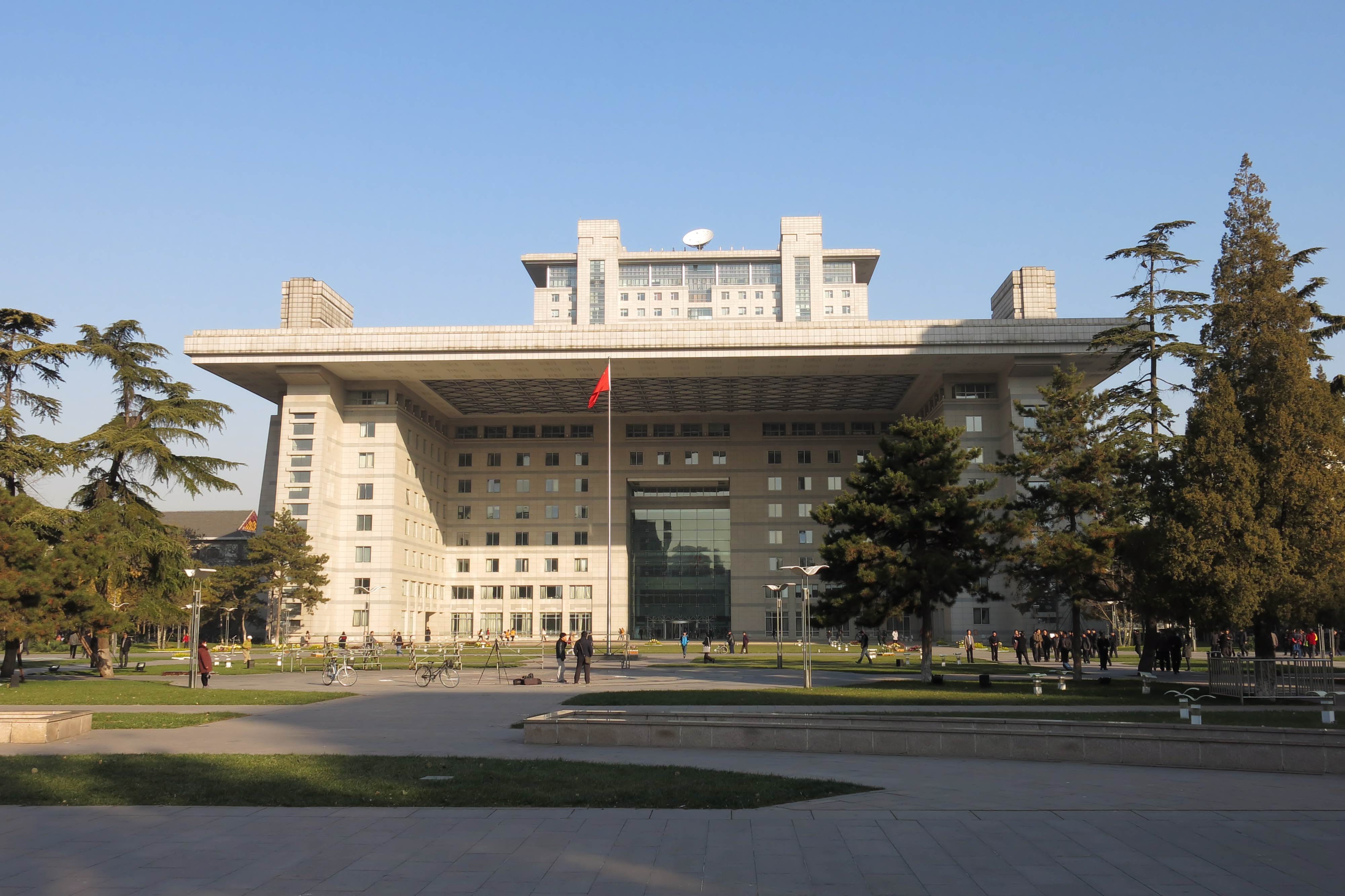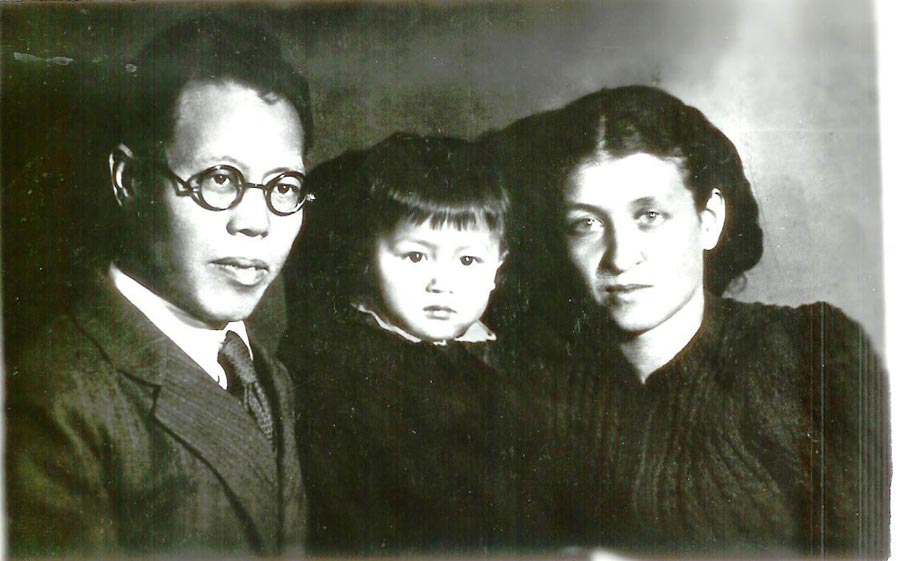|
Yi Peiji
Yi Peiji (; 28 February 1880 – September 1937) was a Chinese politician, scholar, and educator. Life and career Yi was born in Changsha, Hunan, on February 28, 1880. He graduated from Hubei Fangyan College (now Wuhan University), then he went to Japan to study under Zhang Taiyan. After the establishment of Republic of China, he became a secretary of Li Yuanhong. Then he taught at Changsha Normal College and Hunan First Normal University, his students included Mao Zedong, Cai Hesen, Xiao Zisheng, Xiao San, He Shuheng, Li Weihan, and Li Lisan. He held the three responsibilities of president of Hunan Provincial Library, secretary-general of Hunan government, and president of Hunan First Normal University from June 1920 to November 1920. Then he served as president of Beijing Women's Normal University (now Beijing Normal University). He was Minister of Education in December 1925, and held that office until March 1926. In 1927 he became president of National Labor University, a p ... [...More Info...] [...Related Items...] OR: [Wikipedia] [Google] [Baidu] |
Yi (Chinese Surname)
Yì () is a Chinese surname, in Cantonese it is transliterated as Yick or Yik, the Chinese commercial code (CCC) of which is 2496. It is also rarely spelled as Yih or Ie, depending on where it is originated. Yi (이), is a phonetic pronunciation of a Korean surname that has a different origin than the Chinese surname (易). The origin of Yi (Korean surname) can be traced back to the writings of Sima Qian and Three Kingdoms of Korea and uses the Chinese characters 李, 異, or 伊. They are often romanized as Li (surname) or Lee (Korean surname), or Itō (surname) in Japanese. Yi is also different Chinese family names, written (), () and (). Place of origin According to the book of Hundred Family Surnames (百家姓), Yi family originated from Jiang (surname)#.E5.A7.9C, Jiang (姜) family who moved to Yi county (present day Chang county in Hebei province). The other place of origin is Yi county (present day Yi county in Hebei province). During the period of Qin dynasty, Yi family ... [...More Info...] [...Related Items...] OR: [Wikipedia] [Google] [Baidu] |
Cai Hesen
Cai Hesen (March 30, 1895 – August 4, 1931) was an early leader of the Chinese Communist Party (CCP), and a friend and comrade of Mao Zedong. Cai was born in Shanghai but grew up in Shuangfeng County in Hunan Province of China. He helped Mao organize the Changsha ''New People's Study Society''. In 1919 he went to France on the Work-Study program, and his letters of advocacy were important in convincing Mao of the Bolshevik revolutionary approach. On his return to China, he was an important leader and organizer for the young Communist Party, spent several years in Moscow, and returned to China again in 1931. While organizing revolutionary activity in Hong Kong, he was arrested and given over to Canton authorities, who executed him in August, 1931. Youth and education Cai's family included both merchants and scholar-officials, but his father had not done well in the family business and instead obtained a job in the Jiangnan Arsenal in Shanghai, where Cai was born, March ... [...More Info...] [...Related Items...] OR: [Wikipedia] [Google] [Baidu] |
Education Ministers Of The Republic Of China
Education is a purposeful activity directed at achieving certain aims, such as transmitting knowledge or fostering skills and character traits. These aims may include the development of understanding, rationality, kindness, and honesty. Various researchers emphasize the role of critical thinking in order to distinguish education from indoctrination. Some theorists require that education results in an improvement of the student while others prefer a value-neutral definition of the term. In a slightly different sense, education may also refer, not to the process, but to the product of this process: the mental states and dispositions possessed by educated people. Education History of education, originated as the transmission of cultural heritage from one generation to the next. Today, educational aims and objectives, educational goals increasingly encompass new ideas such as the Philosophy of education#Critical theory, liberation of learners, 21st century skills, skills needed fo ... [...More Info...] [...Related Items...] OR: [Wikipedia] [Google] [Baidu] |
National Wuhan University Alumni
National may refer to: Common uses * Nation or country ** Nationality – a ''national'' is a person who is subject to a nation, regardless of whether the person has full rights as a citizen Places in the United States * National, Maryland, census-designated place * National, Nevada, ghost town * National, Utah, ghost town * National, West Virginia, unincorporated community Commerce * National (brand), a brand name of electronic goods from Panasonic * National Benzole (or simply known as National), former petrol station chain in the UK, merged with BP * National Car Rental, an American rental car company * National Energy Systems, a former name of Eco Marine Power * National Entertainment Commission, a former name of the Media Rating Council * National Motor Vehicle Company, Indianapolis, Indiana, USA 1900-1924 * National Supermarkets, a defunct American grocery store chain * National String Instrument Corporation, a guitar company formed to manufacture the first resonator gui ... [...More Info...] [...Related Items...] OR: [Wikipedia] [Google] [Baidu] |
Politicians From Changsha
A politician is a person active in party politics, or a person holding or seeking an elected office in government. Politicians propose, support, reject and create laws that govern the land and by an extension of its people. Broadly speaking, a politician can be anyone who seeks to achieve political power in a government. Identity Politicians are people who are politically active, especially in party politics. Political positions range from local governments to state governments to federal governments to international governments. All ''government leaders'' are considered politicians. Media and rhetoric Politicians are known for their rhetoric, as in speeches or campaign advertisements. They are especially known for using common themes that allow them to develop their political positions in terms familiar to the voters. Politicians of necessity become expert users of the media. Politicians in the 19th century made heavy use of newspapers, magazines, and pamphlets, as well a ... [...More Info...] [...Related Items...] OR: [Wikipedia] [Google] [Baidu] |
1937 Deaths
Events January * January 1 – Anastasio Somoza García becomes President of Nicaragua. * January 5 – Water levels begin to rise in the Ohio River in the United States, leading to the Ohio River flood of 1937, which continues into February, leaving 1 million people homeless and 385 people dead. * January 15 – Spanish Civil War: Second Battle of the Corunna Road ends inconclusively. * January 20 – Second inauguration of Franklin D. Roosevelt: Franklin D. Roosevelt is sworn in for a second term as President of the United States. This is the first time that the United States presidential inauguration occurs on this date; the change is due to the ratification in 1933 of the Twentieth Amendment to the United States Constitution. * January 23 – Moscow Trials: Trial of the Anti-Soviet Trotskyist Center – In the Soviet Union 17 leading Communists go on trial, accused of participating in a plot led by Leon Trotsky to overthrow Joseph Stalin's regime, and assa ... [...More Info...] [...Related Items...] OR: [Wikipedia] [Google] [Baidu] |
1880 Births
Year 188 (CLXXXVIII) was a leap year starting on Monday of the Julian calendar. At the time, it was known in the Roman Empire as the Year of the Consulship of Fuscianus and Silanus (or, less frequently, year 941 ''Ab urbe condita''). The denomination 188 for this year has been used since the early medieval period, when the Anno Domini calendar era became the prevalent method in Europe for naming years. Events By place Roman Empire * Publius Helvius Pertinax becomes pro-consul of Africa from 188 to 189. Japan * Queen Himiko (or Shingi Waō) begins her reign in Japan (until 248). Births * April 4 – Caracalla (or Antoninus), Roman emperor (d. 217) * Lu Ji (or Gongji), Chinese official and politician (d. 219) * Sun Shao, Chinese general of the Eastern Wu state (d. 241) Deaths * March 17 – Julian, pope and patriarch of Alexandria * Fa Zhen (or Gaoqing), Chinese scholar (b. AD 100) * Lucius Antistius Burrus, Roman politician (executed) * Ma Xiang, Chin ... [...More Info...] [...Related Items...] OR: [Wikipedia] [Google] [Baidu] |
Huang Fu
Huang Fu () (8 March 1883 – 6 December 1936) was a general and politician in early Republic of China. Biography Huang studied at Zhejiang Military College and Qiushi Academy (current Zhejiang University), later was sent to Japan in 1904. at www.zju.edu.cn Huang came in contact with the while studying at the , a military academy in in 1905 and met |
Director Of National Palace Museum
The National Palace Museum (; Pha̍k-fa-sṳ: Kwet-li̍p kù-kiung pok-vu̍t-yèn), is a museum in Taipei, Republic of China (Taiwan). It has a permanent collection of nearly 700,000 pieces of Chinese artifacts and artworks, many of which were moved from the Palace Museum in the Forbidden City in Beijing, as well as five other institutions throughout mainland China during the ROC retreat. These collections had been transferred to several locations before finally settling on present-day Shilin, Taipei and establishing the museum there in 1965, making it one of the largest of its type in the world. The museum's collection encompasses items spanning 8,000 years of Chinese history from the neolithic age to the modern period. The National Palace Museum shares its roots with the Palace Museum of Beijing, whose extensive collection of artwork and artifacts were built upon the imperial collections of the Ming and Qing dynasties. History Establishment in Beijing and relocation The ... [...More Info...] [...Related Items...] OR: [Wikipedia] [Google] [Baidu] |
Beijing Normal University
Beijing Normal University (BNU, ), colloquially known as Beishida (), is a public research university located in Beijing, China, with a strong emphasis on humanities and sciences. It is one of the oldest and most prestigious universities in China as part of Class A Double First Class University in the Double First Class University Plan and was designated by the Chinese Ministry of Education as a member of Project 985 and Project 211. "Normal school" refers to an institution that trained schoolteachers in the early 20th century. The title is preserved in the names of Chinese institutions after they developed into comprehensive universities. It also reflects BNU's heritage as a Faculty of Education member of the Imperial University of Peking which was established as China's first modern university. BNU ranked first among universities that originated as “normal schools”. The Faculty of Education is considered the best in China according to several widely cited international ran ... [...More Info...] [...Related Items...] OR: [Wikipedia] [Google] [Baidu] |
Li Lisan
Li Lisan (; November 18, 1899 – June 22, 1967) was a Chinese politician, member of the Politburo, and later a member of the Central Committee. Early years Li was born in Liling, Hunan province in China in 1899, under the name of Li Rongzhi. His father, a teacher, taught Li Chinese traditional poems and classics. In 1915, he arrived at Changsha for high school and saw an advertisement in a newspaper written by a student from First Normal School of Changsha with the pen name 28 Strokes. Li met, and then became friends with, the young man whose real name was Mao Zedong. Later, Li joined the army of a local warlord in Hunan. One of the Division Commanders, Cheng Qian, who was both Li's father's townsman and alumni, sponsored Li to study in Beijing. Beginning career France When Li reached Beijing, he applied to study in France and arrived there in 1920. He worked part-time as assistant to a boilermaker to earn his tuition. His boss was a member of Communist Party, and Li ... [...More Info...] [...Related Items...] OR: [Wikipedia] [Google] [Baidu] |
Li Weihan
Li Weihan (; 2 June 1896 – 11 August 1984) was a Chinese Communist Party politician. After pursuing his studies in France in 1919–20, he returned to China for the Party's founding Congress in Shanghai in 1921. He became a member of the Politburo in 1927 but fell out of favour shortly afterwards in the wake of the unsuccessful Autumn Harvest Uprising in junction of Hunan and Jiangxi provinces. When he sought to bring the uprising to an end, he found himself accused of cowardice. Li was eclipsed until reemerging in the early 1930s as a supporter of Li Lisan, a leading figure in the party at the time, and an opponent of the anti- Mao 28 Bolsheviks faction. Li Weihan was promoted to become the first principal of the Yan'an-based Central Party School of the Communist Party, the highest training center for party workers and leaders. Li served as principal from 1933 to 1935 and again from 1937 to 1938. After the Proclamation of the People's Republic of China in 1949, Li was i ... [...More Info...] [...Related Items...] OR: [Wikipedia] [Google] [Baidu] |






